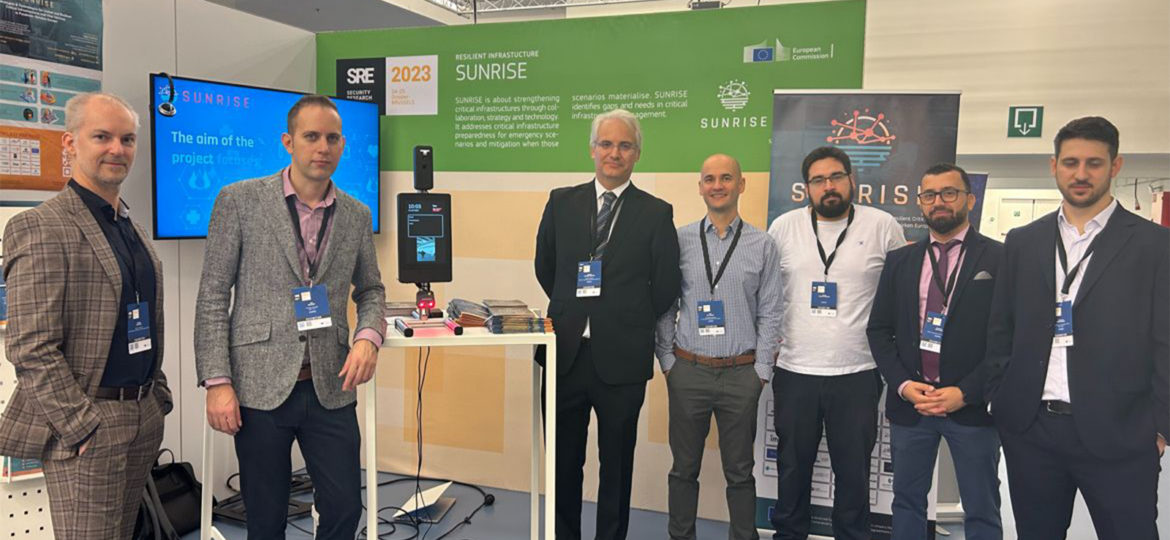
The EU-funded SUNRISE project marked the end of its first year by participating in the European Commission’s Security Research Event (SRE) in Brussels on October 24th and 25th.
SUNRISE aims to ensure greater availability, reliability, and continuity of critical infrastructures, to the benefit of all European citizens. In the past year it has brought together 41 expert organisations from 15 countries to develop a suite of new technologies and solutions to safeguard critical infrastructures during pandemics, and other major risks.
The project had the opportunity to showcase the progression of these new technologies and solutions at the SRE – an annual meeting where industry, policy makers and knowledge institutions come together to discuss the state of play and current challenges for security research in Europe.
Speaking ahead of the SRE in Brussels, project coordinator Antonio Alvarez Romero from ATOS IT Solutions said:
“As we reach the end of the SUNRISE project’s first year, we are delighted to have the opportunity to be a part of an event as significant as the SRE. It has been a highly productive 12 months for all our partners across Europe, with the SUNRISE technologies and strategies seeing positive progress in a short period of time. We are looking forward to showcasing the development of SUNRISE’s four main tools at the SRE and hope that those in attendance can benefit from the demonstrations as well as the information provided at our booth.”
Looking ahead, Mr Alvarez said:
“With two further years on the horizon, the goal of the SUNRISE project remains the strengthening of Europe’s critical infrastructures through collaboration, strategy, and technology.”
In addition to having a dedicated booth at the event, which featured over 50 selected security projects funded by the EU, SUNRISE partners were able to demonstrating progress of some of the project’s tools to those in attendance.
These tools are a part of the SUNRISE project’s three main pillars, along with strategy and collaboration, and consist of:
- Cyber-Physical Resilience Tool
- Remote Physical Infrastructure Inspection Tool
- Resource Demand Prediction and Management Tool
- Risk-based Access Control (RiBAC) Tool
The SUNRISE tools and strategies will be piloted in a real-world setting with several critical infrastructure authorities and operators from across eight European countries; Slovenia, Spain, Italy, Serbia, France, Estonia, Israel, and Czech Republic. This will enable the preparation of results for a wide uptake, replication, and up-scaling across different critical entities, critical sectors, and European countries.
From a collaboration standpoint, the SUNRISE project has held a series of national workshops with critical infrastructure operators and authorities in Spain, Italy, and Slovenia to review resilience at local, regional, national and EU levels. A new stable working group on resilience to pandemics will be created, which will continue following the conclusion of the project in September 2025

